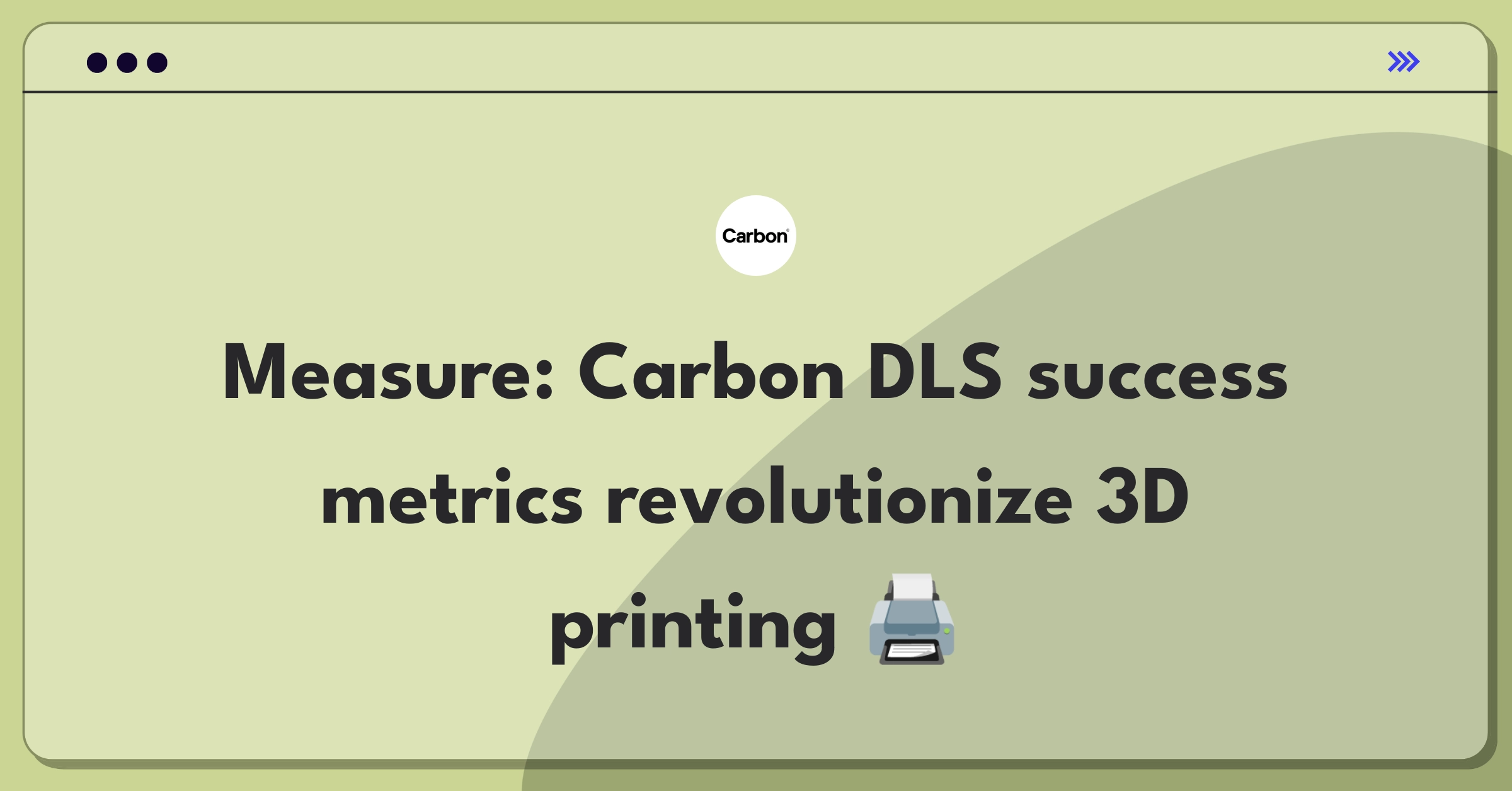Introduction
Evaluating Carbon's Digital Light Synthesis (DLS) technology requires a comprehensive approach to product success metrics. This revolutionary 3D printing technology has the potential to transform manufacturing, so we need a robust framework to assess its performance and impact. I'll follow a structured approach covering core metrics, supporting indicators, and risk factors while considering all key stakeholders.
Framework Overview
I'll follow a simple success metrics framework covering product context, success metrics hierarchy, and strategic implications.
Step 1
Product Context
Carbon's Digital Light Synthesis technology is an advanced 3D printing process that uses light and oxygen to rapidly produce objects from a pool of liquid resin. It's designed to overcome the limitations of traditional 3D printing methods, offering faster production speeds, improved material properties, and the ability to create complex geometries.
Key stakeholders include:
- Manufacturing companies (primary customers)
- End-users of manufactured products
- Carbon's investors and shareholders
- Carbon's R&D and engineering teams
- Material suppliers and partners
User flow:
- Design: Engineers create 3D models using CAD software.
- Preparation: Models are optimized for DLS printing and sent to the printer.
- Printing: The DLS process builds the object layer by layer using light projection and oxygen control.
- Post-processing: Printed objects undergo cleaning, curing, and finishing steps.
DLS fits into Carbon's strategy of revolutionizing manufacturing through additive technologies. It aims to enable mass production of complex parts with properties comparable to injection-molded plastics.
Compared to competitors like HP's Multi Jet Fusion or traditional SLA printers, DLS offers faster print speeds and a wider range of material properties.
Product Lifecycle Stage: Early Growth. DLS has moved beyond the initial introduction phase and is gaining traction in various industries, but still has significant room for expansion and refinement.
Hardware considerations:
- Printer reliability and uptime
- Material handling and waste management
- Integration with existing manufacturing workflows
Subscribe to access the full answer
Monthly Plan
The perfect plan for PMs who are in the final leg of their interview preparation
$99.00 /month
- Access to 8,000+ PM Questions
- 10 AI resume reviews credits
- Access to company guides
- Basic email support
- Access to community Q&A
Yearly Plan
The ultimate plan for aspiring PMs, SPMs and those preparing for big-tech
- Everything in monthly plan
- Priority queue for AI resume review
- Monthly/Weekly newsletters
- Access to premium features
- Priority response to requested question


.png)